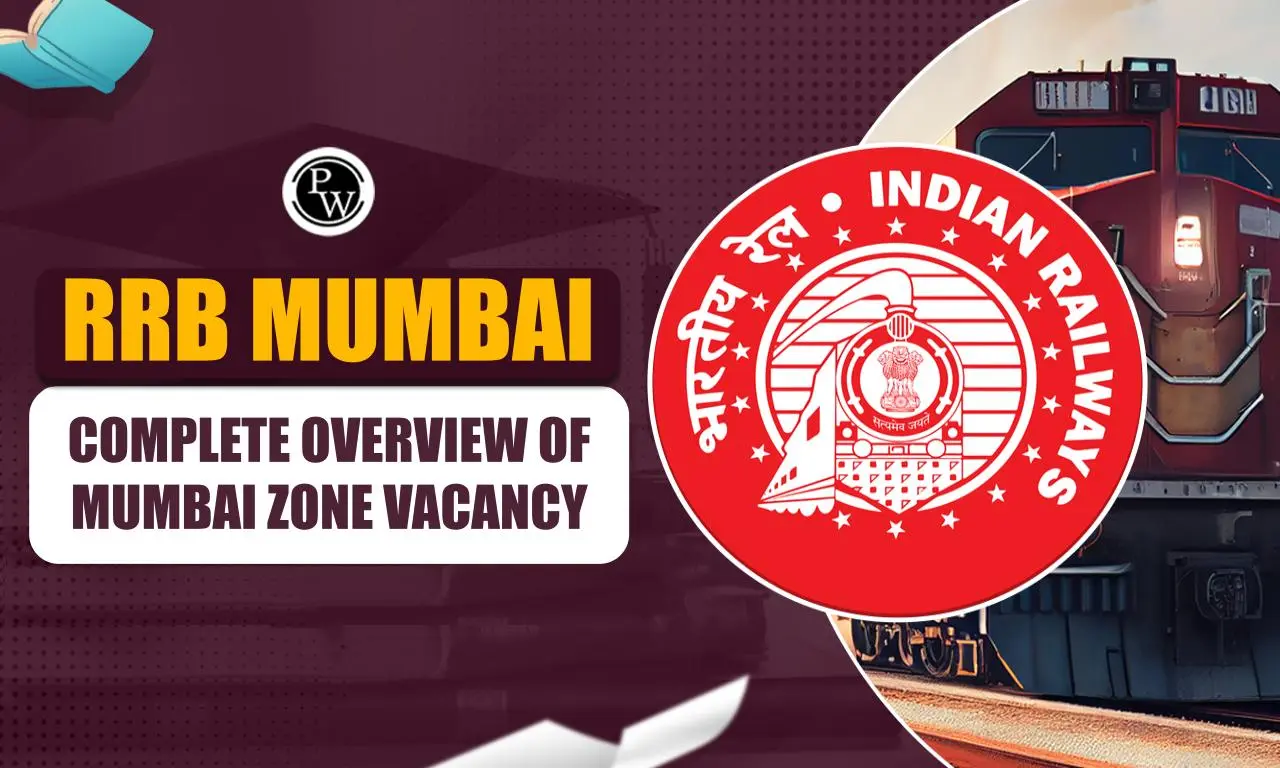
RRB Ministerial and Isolated Categories Study Plan 2025: The RRB Ministerial and Isolated Categories exam is one of the competitive recruitment exams conducted by the Railway Recruitment Board (RRB) for various ministerial and teaching posts such as Junior Translators, Law Assistants, teachers, and others. Due to the variety of posts and the specific RRB Ministerial and Isolated Categories eligibility criteria, aspirants need to have a targeted and well-structured study plan.
This article presents a comprehensive RRB Ministerial and Isolated Categories Study Plan 2025 specific to the syllabus, exam pattern, and other requirements of the RRB Ministerial and Isolated Categories 2025 exam. Candidates will find a breakdown of topics, preparation strategies, and tips to manage time effectively.
RRB Ministerial and Isolated Categories Study Plan 2025
Understanding the RRB Ministerial and Isolated Categories exam pattern is the first step toward efficient preparation. The Computer-Based Test (CBT) forms the foundation of the RRB Ministerial and Isolated Categories selection process. Different posts under this category may have additional skill tests but most candidates' written test structure remains broadly similar.
RRB Ministerial and Isolated Categories Exam Pattern
The exam is conducted online and includes objective-type multiple-choice questions. The subjects and weightage are slightly different depending on the post, but in general, the pattern remains as follows:
|
RRB Ministerial and Isolated Categories CBT Exam Pattern |
|||
|
Section |
No. of Questions |
Maximum Marks |
Duration |
|
Professional Ability |
50 |
50 |
90 Minutes 120 Minutes (PwBD Candidates) |
|
General Awareness |
15 |
15 |
|
|
General Intelligence and Reasoning |
15 |
15 |
|
|
Mathematics |
10 |
10 |
|
|
General Science |
10 |
10 |
|
|
Total |
100 |
100 |
|
There is a negative marking of 1/3rd for every wrong answer. Therefore, accuracy is crucial during the exam.
Focused Subjects in RRB Ministerial and Isolated Categories Study Plan
Once candidates understand the exam pattern, the next step is to go through the subject-wise syllabus. The RRB MI syllabus varies slightly depending on the post applied for, especially in the Professional Ability section. However, for most candidates, the following topics are essential.
General Awareness
This section evaluates a candidate’s knowledge of current affairs and general knowledge, which includes static and dynamic topics. It is important to be updated with the latest national and international news.
General Intelligence and Reasoning
This section tests logical thinking and analytical ability. It requires daily practice and familiarity with the structure of reasoning questions.
Mathematics
Mathematics is applicable to all posts under the RRB MI categories which require strong arithmetic and algebra skills.
Subject Wise RRB Ministerial and Isolated Categories Study Plan
A subject-wise strategy ensures equal attention to each section and helps maximize the score in each area.
General Awareness
To succeed in this section, candidates must maintain a consistent reading habit. Use one national newspaper and one monthly current affairs magazine. Also, refer to government schemes and important facts from static GK. Make short notes topic-wise for revision.
Reasoning Ability
This section demands daily practice. Begin with basic puzzles and move to advanced topics. Use a timer while solving sets to improve your speed. Revise common patterns of coding, syllogism, and series questions.
Mathematics
Candidates should first clear all basic concepts from NCERT or quantitative books. Once familiar, shift to RRB-specific practice books. Memorize formulas, understand shortcut tricks, and revise them weekly.
Professional Ability
This section is highly scored if well-prepared. For skill-based roles like translators, daily translation practice is essential. For TGTs, read educational psychology, child pedagogy, and subject-specific material. Legal and administrative roles require knowledge of relevant rules and laws.
How to Approach RRB Ministerial and Isolated Categories Exam Preparation?
Here’s how you can approach the RRB Ministerial and Isolated Categories Exam 2025 month-by-month with short, clear goals:
| How to Approach RRB Ministerial and Isolated Categories Exam Preparation? | |
|---|---|
| Preparation Phase | Focus Areas |
| Foundation Phase |
|
| Practice & Skill-Building |
|
| Testing & Analysis Phase |
|
| Final Revision Phase |
|
Daily Timetable for RRB Ministerial and Isolated Categories Preparation
Here's a daily timetable for RRB Ministerial and Isolated Categories Exam 2025 preparation, designed to cover all major subjects and skill components in a balanced way. This plan assumes you can dedicate 6–8 hours daily, which is ideal for full-time preparation.
|
Daily Timetable for RRB Ministerial and Isolated Categories Preparation |
||
|
Time |
Activity |
Focus Area |
|
7:00 – 8:00 AM |
Morning routine, light exercise, newspaper reading |
Mind refresh + Current Affairs |
|
8:00 – 9:30 AM |
Study Session 1 |
General Awareness (Static + Railways GK) |
|
9:30 – 10:00 AM |
Break + Breakfast |
Relaxation |
|
10:00 – 11:30 AM |
Study Session 2 |
Mathematics (1 topic + 30 questions) |
|
11:30 – 1:00 PM |
Study Session 3 |
Reasoning (timed practice) |
|
1:00 – 2:00 PM |
Lunch + Power Nap |
Rest + Recharge |
|
2:00 – 3:30 PM |
Study Session 4 |
Post-Specific Preparation |
|
3:30 – 5:00 PM |
Study Session 5 |
Mock Test or Previous Year Paper |
|
5:00 – 5:30 PM |
Break + Tea |
Refreshment |
|
5:30 – 6:30 PM |
Study Session 6 |
Revision + Current Affairs MCQs |
|
8:00 – 9:00 PM |
Optional Night Session (Light Study) |
Skill Test Practice |
Important Books for RRB Ministerial and Isolated Categories Preparation
Choosing the right set of books is critical for preparation. Refer to standard books that provide a solid foundation for each subject covered in the RRB MI exam. Check the link below for RRB Ministerial and Isolated Categories books:
Preparation Tips for RRB Ministerial and Isolated Categories Exam 2025
Cracking the RRB Ministerial and Isolated Categories Exam requires smart planning, regular practice, and clarity of concepts. With the above RRB Ministerial and Isolated Categories study plan, aspirants can efficiently cover the syllabus and gain confidence to face both the CBT and skill tests
- Follow a consistent study routine for all days.
- Revise notes weekly to keep topics fresh in memory.
- Attempt previous year question papers and section-wise quizzes regularly.
- Avoid last-minute cramming; instead, focus on mock test analysis and time management.
- Candidates applying for skill-based posts must prioritize typing or steno practice daily.
PW provides Railway exam content, including Railway Exam Blogs, sample papers, mock tests, guidance sessions, and more. Also, enroll today on Railway Online Coaching for preparation.
RRB Ministerial and Isolated Categories Study Plan FAQs
How many hours should I study daily?
Is typing or shorthand compulsory?
How to prepare for General Awareness?
When should I start mock tests?










